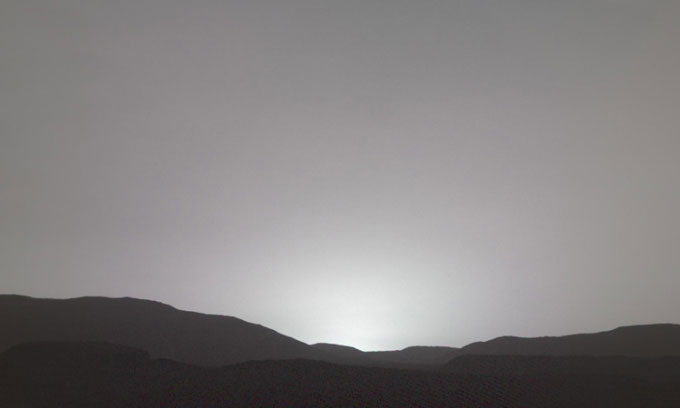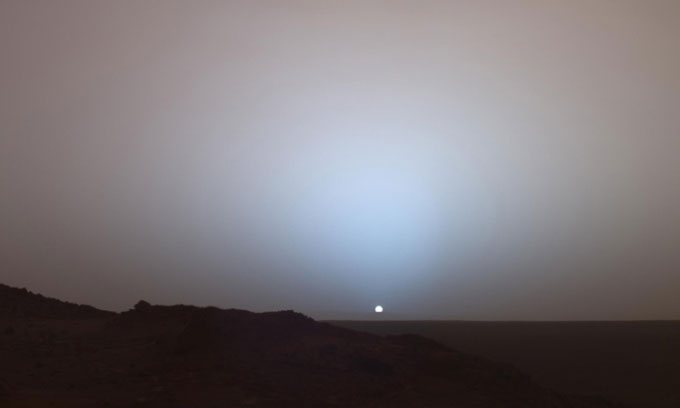NASA robot captures unusual sunset on Mars
The Martian sunset in the new image of the Perseverance robot does not have the usual blue color because the atmosphere contains less dust.

The scene of the sunset on Mars was taken by the Perseverance robot on 9/11. (Photo: NASA).
The Perseverance robot first photographed the Martian sunset on 9/11, day 257 of the mission (in Martian days), using the Mastcam-Z camera system. In the image, the Sun has disappeared behind the mountains of the Jezero crater, which scientists believe was once filled with water.
Mars sunsets are usually blue, but this new photo isn't. The reason is that there is not much dust in the atmosphere when Perseverance points the lens up and takes the picture.
Mars is famous for being a desert planet with a lot of dust. "The fine dust in the atmosphere allows blue light to pass through better than colors with longer wavelengths. This sunset looks different because there's less dust in the atmosphere, making the scene darker than average. flask," NASA explained.

Robot Spirit recorded a blue sunset in the Gusev crater, Mars, 2005. (Photo: NASA).
Perseverance landed on Mars on February 18. The robot is so busy with missions on the red planet's surface that it has only been able to take pictures of the setting sun until now. Its main task is to find traces of ancient life. It will study interesting soil samples that may contain traces of life, such as organic matter that microorganisms once absorbed. In addition, the robot also learns about the climate and geology of Mars in the past, enabling humans to explore the red planet.
Perseverance has begun taking soil and rock samples to serve the mission of collecting samples and bringing them back to Earth in the future. To date, under the guidance of NASA, the robot has taken and preserved three soil samples in titanium tubes. One day, they could help scientists determine if any living things ever thrived in the lakes of Mars.
- InSight probes capture sunrise and sunset on Mars
- Blue sunset on Mars surface
- NASA lost contact with Mars robots for two weeks
- NASA robot captures Mars moon at an altitude of 23,458km
- NASA postponed the schedule for launching robots to Mars
- NASA declares: Humans can live on Mars!
- The reverse sunset beam 'dyes' the pink sky
- The sunset on Mars is blue
- NASA found the slab that could possibly contain life on Mars
- NASA's bee bee exploration plan
- Revealed 'explorer' will go to Mars in 2020
- Discover many unusual things on Mars
 Announced 3 houses on the Moon and Mars
Announced 3 houses on the Moon and Mars Science proves: Mars also knows 'deflated'
Science proves: Mars also knows 'deflated' Elon Musk announced the price for a Mars trip was 11.6 billion VND, free of charge
Elon Musk announced the price for a Mars trip was 11.6 billion VND, free of charge NASA discovered strange 'gate' on Mars, is the hiding place found?
NASA discovered strange 'gate' on Mars, is the hiding place found?